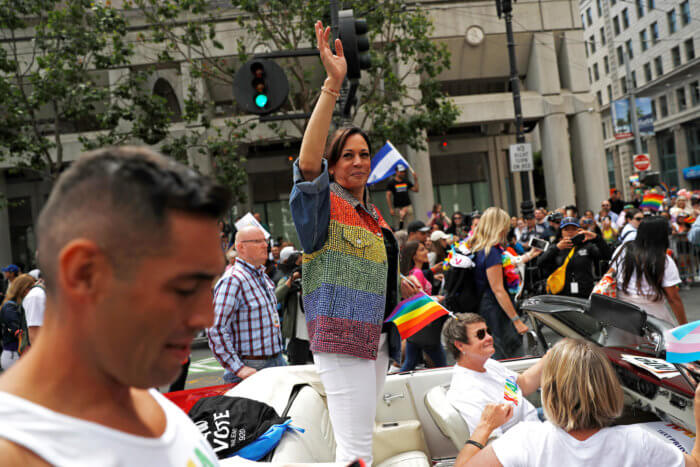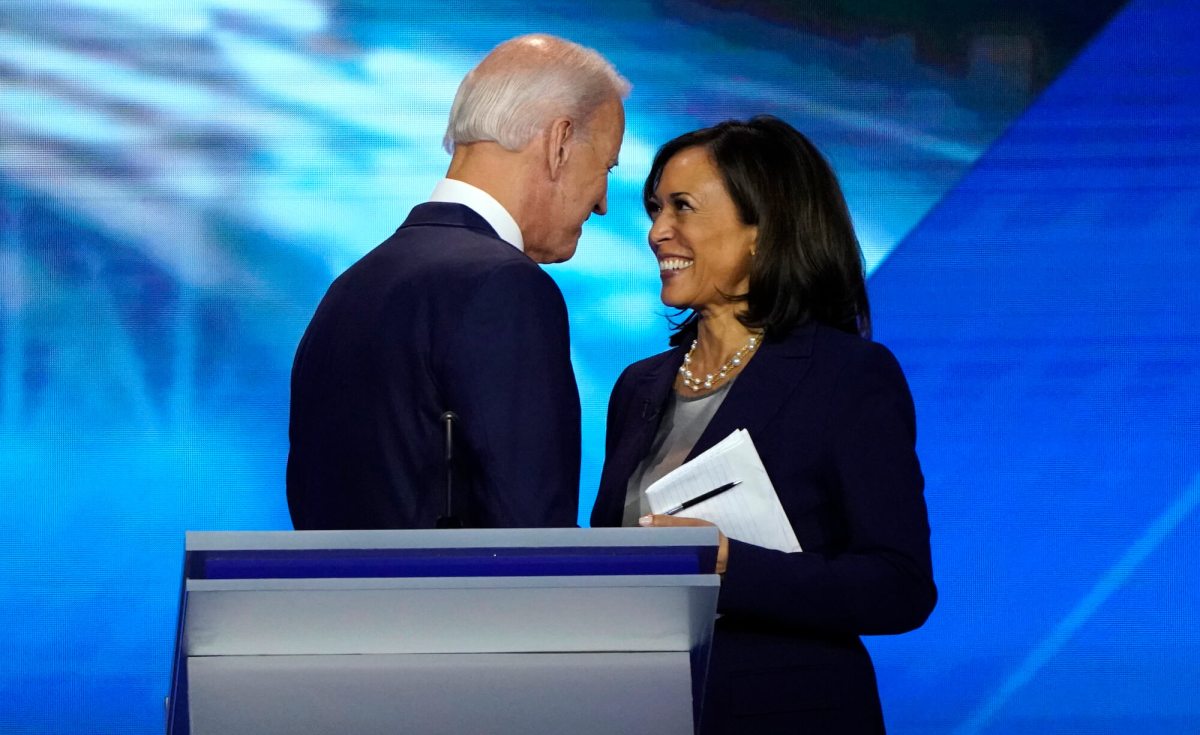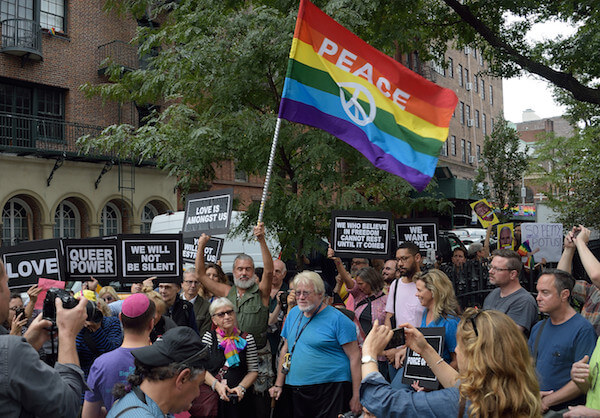Former Vice President Joe Biden ended the lingering suspense on August 11 when he announced that California Senator Kamala Harris will be the Democratic nominee for vice president, marking the first time a woman of color will be on a major party presidential ticket.
“I have the great honor to announce that I’ve picked @KamalaHarris — a fearless fighter for the little guy, and one of the country’s finest public servants — as my running mate,” Biden wrote on Twitter. “Back when Kamala was attorney general, she worked closely with Beau. I watched as they took on the big banks, lifted up working people, and protected women and kids from abuse. I was proud then, and I’m proud now to have her as my partner in this campaign.”
Biden’s late son Beau served as Delaware attorney general for eight years up until a few months prior to his death from cancer at age 46 in 2015, a tragedy widely viewed as the reason his father did not seek the presidency the following year.
Minutes after Biden’s announcement, Harris tweeted, “@JoeBiden can unify the American people because he’s spent his life fighting for us. And as president, he’ll build an America that lives up to our ideals. I’m honored to join him as our party’s nominee for vice president, and do what it takes to make him our commander-in-chief.”
Should the Biden-Harris ticket defeat President Donald Trump and Vice President Mike Pence in November, Harris would be the first woman to serve as vice president. It marks the second straight presidential election cycle that the Democratic ticket features a woman, after former Secretary of State Hillary Clinton’s unsuccessful bid for the White House in 2016.
Harris, the second Black woman to serve in the US Senate – and the first with an Indian-born parent — ascended to the post of San Francisco district attorney in 2003 before being elected attorney general of California in 2010. She was elected to the US Senate in 2016.
Biden’s vice presidential revelation came after he was recently spotted holding talking points that reminded him not to hold grudges against Harris. During a debate last summer, Harris, running for the Democratic nomination for president, launched a stinging attack on the former vice president, blasting him for working with Senate segregationists in the past and chiding him for opposing school busing in the 1970s in his home state of Delaware.
Harris, meanwhile, is entering the general election saddled with some years-old baggage of her own. The California senator’s prosecutorial background has sometimes been a liability for her among progressives who have increasingly become resistant to overpolicing, incarceration, and tough-on-crime approaches to criminal justice. Her record was litigated extensively earlier in this election cycle, and it directly intersected with her history on LGBTQ issues.
In 2014, Harris, then California’s state attorney general, resisted the request of an incarcerated transgender woman to undergo gender-affirming surgery. Michelle Lael-Norsworthy, the transgender woman seeking care, filed a lawsuit blaming the state for failing to provide her with necessary healthcare. After a federal judge ordered the state’s correction department to allow her to go ahead with surgery, Harris argued against the order in the Ninth Circuit Court of Appeals, saying that Lael-Norsworthy “has been receiving hormone therapy for her gender dysphoria since 2000 and continues to receive hormone therapy and other forms of treatment… there is no evidence that Norsworthy is in serious, immediate physical or emotional danger.”
When Harris was confronted about that case during an Iowa LGBTQ forum in September of last year, she blamed the policies of California’s Department of Correction at the time before drifting off topic. She maintains that she now supports full access to gender-affirming care.

Harris has also signaled a willingness to evolve on other issues relevant to the LGBTQ community. When asked last year during an interview with The Root whether she supported the decriminalization of sex work, she said, “I think so. I do… when you are talking about consenting adults, I think that, you know, yes, we should really consider that we can’t criminalize consensual behavior as long as no one is being harmed.” It is not clear, however, whether Harris favors full sex work decriminalization or the Nordic Model, which only aims to decriminalize sex work for workers rather than their clients — a half-step sex worker advocates argue continues to keep such work underground and therefore dangerous.
Nevertheless, the position represented a shift from the policies of her past. As San Francisco district attorney in 2008, Harris was an opponent of a measure to end sex work arrests in the city, saying at the time that “it’s completely ridiculous” and alleging that the meassure would “put a welcome mat out for pimps and prostitutes to come into San Francisco.”
When she became attorney general, and again in the Senate, Harris pushed the SESTA/ FOSTA legislation that was viewed as hurtful for sex workers because it forced sites that housed sex worker listings to shut down out of fear that they would be held responsible for what users agreed to through their sites. That legislation, too, is seen as a bar to making the environment for sex workers safer.
Harris’ overall platform on LGBTQ rights during the primary race was largely aligned with many of her colleagues on the crowded debate stage. She vowed to pass the comprehensive non-discrimination bill known as the Equality Act, said she would reverse Trump’s ban on transgender individuals from the military, supported allowing non-binary Americans to update their gender marker on their passport with an “X” designation, and wanted to ban discrimination against foster children and prospective parents.
Harris also signaled her intention to take on the violence facing transgender women of color and expressed support for training cops to reduce the risk of violence facing LGBTQ people of color. Furthermore, she committed to opening an office focused on queer issues led by a “Chief Avocate for LGBTQ+ Affairs in the White House.”
In the area of healthcare in general, Harris did not stray far from the centrist approach employed by Biden during the primary process. In 2017, Harris was the first senator to co-sponsor Vermont Senator Bernie Sanders’ single-payer Medicare for All plan, and she continued touting support for that proposal in April of 2019, but during her campaign she proposed a healthcare plan that saw a continued role for employer-sponsored plans and private insurers.
Biden has proposed a “public health insurance option like Medicare,” which would still entail premium payments and other costs, though he asserts healthcare costs would be reduced under his plan.
Harris also said she would seek ways to “take action to reduce the price of PrEP,” an issue that is also mentioned by Biden on his campaign website. The former vice president’s website says he “will ensure that federal health plans provide coverage for PrEP and PEP — lifesaving, highly effective HIV prevention medications. Fortunately, thanks to a recommendation by the U.S. Preventive Task Force, PrEP must be covered without cost-sharing starting in 2021.”
To sign up for the Gay City News email newsletter, visit gaycitynews.com/newsletter.



































